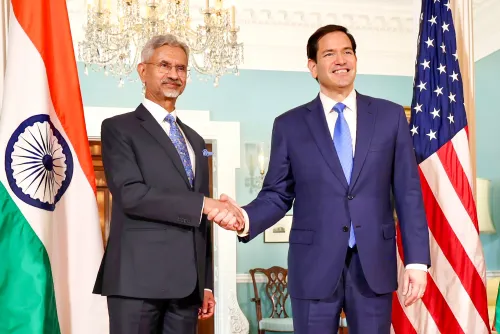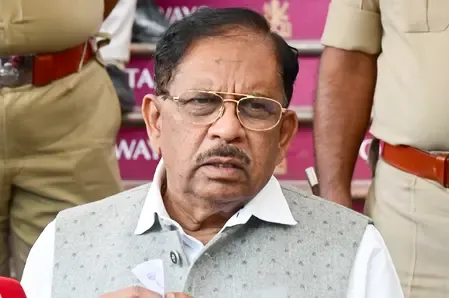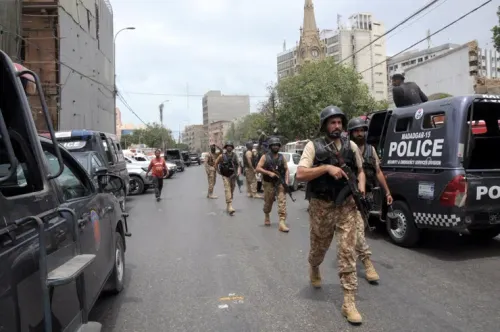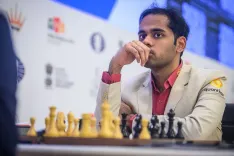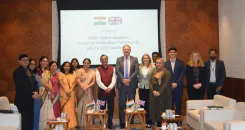HM Amit Shah Advocates Trial in Absentia for National Security Threats
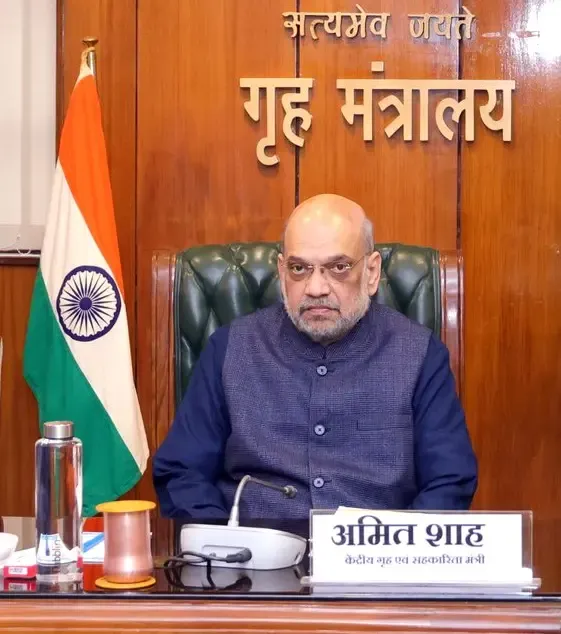
Synopsis
Key Takeaways
- Trial in absentia for long-term fugitives.
- Focus on national security issues.
- Implementation of new criminal laws within three years.
- Importance of forensic science resources in districts.
- Ensuring proper use of ICJS funds.
New Delhi, Jan 17 (NationPress) Union Home Minister Amit Shah stated on Friday that for cases concerning national security, there should be a commencement of trial in absentia against fugitives who have been evading law enforcement by remaining outside the country for an extended period.
During a meeting held in the national capital with Madhya Pradesh Chief Minister Mohan Yadav to evaluate the enforcement of three new criminal laws in the state, HM Shah highlighted that the Indian Civil Security Code incorporates provisions for trial in absentia, allowing for actions against such fugitive criminals.
HM Shah noted that the core principle of the three new criminal laws introduced by Prime Minister Narendra Modi is to ensure justice is delivered within three years, from the time an FIR is filed until a verdict is reached by the Supreme Court.
Praising the Madhya Pradesh government's progress in implementing these new criminal laws, the Home Minister stressed the importance of achieving full implementation in the state promptly.
HM Shah advised that prior to lodging cases under sections pertaining to terrorism and organized crime, senior police officials should ascertain if the case warrants the application of those sections.
He underscored that any misuse of these legal provisions would jeopardize the integrity of the new criminal laws.
HM Shah highlighted the necessity for ongoing supervision of the conversion of ZERO FIRs into regular FIRs. He also recommended establishing a framework that allows for the transfer of FIRs between states via CCTNS (Crime and Criminal Tracking Network & Systems).
The Home Minister further advocated for ensuring the availability of multiple forensic science mobile units in each district. Additionally, he stressed the importance of constructing adequate cubicles in hospitals and jails to facilitate evidence recording through video conferencing.
He urged the state government to guarantee that funds allocated under ICJS (Inter-operable Criminal Justice System) are utilized in strict compliance with the standards established by the Central government.
The meeting also reviewed the implementation and status of various new provisions related to police, prisons, courts, prosecution, and forensics within Madhya Pradesh.
The meeting was attended by the Union Home Secretary, Chief Secretary and Director General of Police from Madhya Pradesh, Director General of BPR&D, Director General of NCRB, along with several senior officials from the Union Home Ministry and the state government.


